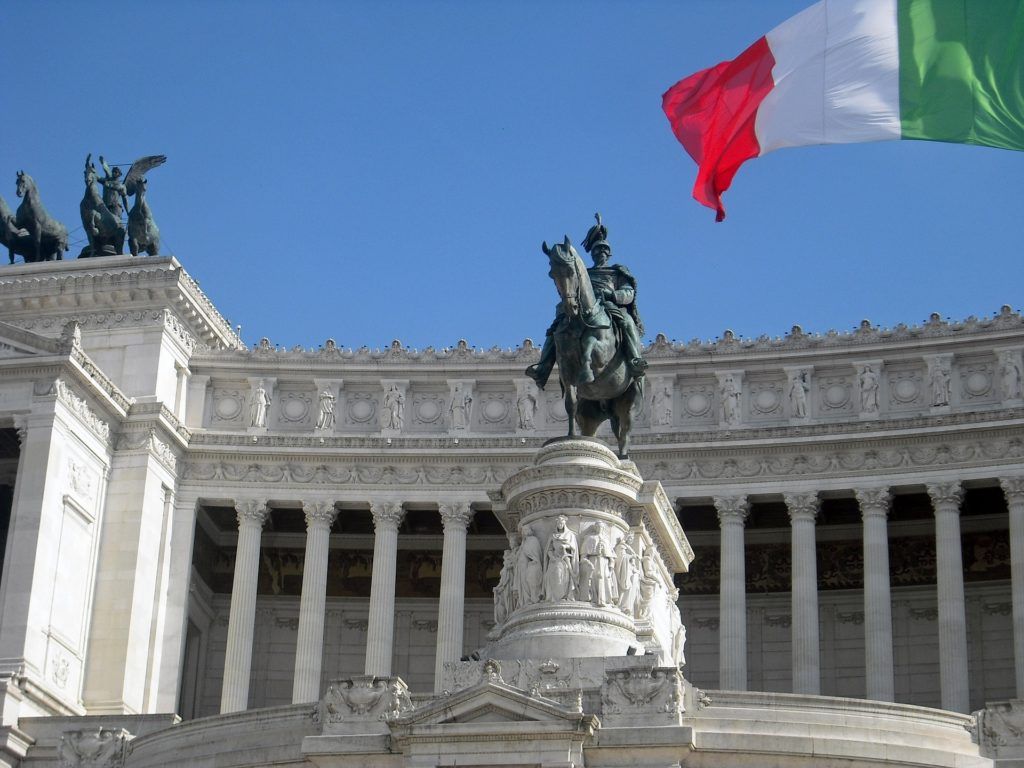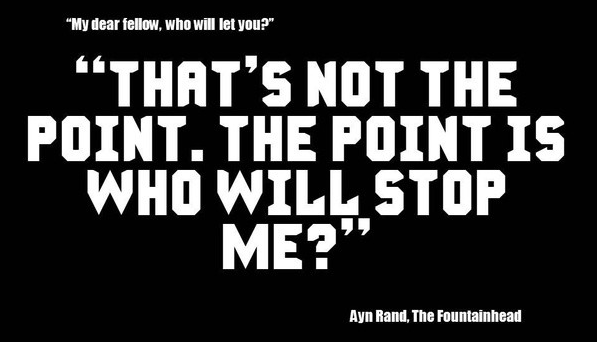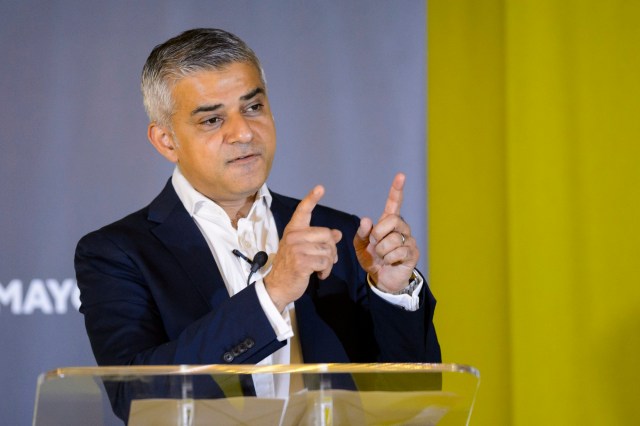Credit: Matt Crossick/Matt Crossick/Empics Entertainment

Earlier, Ross Clark made a defence of Uber and argued that it was a net positive for consumers and workers. Here is the case against from James Bloodworth.
Transport for London’s (TFL) decision to rescind Uber’s license to operate as a cab firm in London came as a shock to almost everyone on Friday. It discombobulated those people who wondered why a technology company – Uber has always claimed to be merely an app rather than a taxi firm – had a cab license in the first place. But it also surprised those of us who had come to assume Uber had grown too powerful to be challenged by regulatory authorities.
TFL have sanctioned Uber, which has around 40,000 drivers in London, for its apparent failure to satisfy public safety concerns. The Mayor of London Sadiq Khan (pictured above) has backed the move by TFL, while Uber has already launched an appeal against the decision and launched a petition (which has so far gathered over 500,000 signatures).
The decision has polarised opinion not only because a Labour mayor is in City Hall and some critics see this as a political move engineered by Sadiq Khan (though they seem reluctant to present any hard evidence to support the claim). But also because it seems to go against the prevailing tide: Uber has for the most part been given an easy ride by global regulators. There have been exceptions of course, such as in Italy where the app has been banned outright; but Uber’s model of ‘disruption’ has functioned quite successfully on the basis that the authorities will invariably back down if you stand your ground.
The decision to ban Uber from London will, I imagine, be overturned on appeal. For all the current hysteria on the part of Uber fans, this will result in an improved transport system for everyone. The broader case for or against Uber is a moot point in this respect: unless one believes in a completely unregulated transport system, there must come a point when the existing rules are enforced. I have not heard a persuasive argument as to why Uber should be exempt from rules which others must adhere to.
But even critics of Uber such as myself can admit that the decision to prohibit Uber from operating in London has potentially deleterious consequences. The livelihoods of 40,000 people, many of whom are already struggling financially, are under threat. This is another layer of insecurity heaped onto an already precarious existence. Many Uber drivers have taken out eye-watering finance deals on hybrid cars – deals which they assumed they could pay off by putting hours in on the road. The blasé dismissal of this precarity – ‘they ought to just get another job’ – by some liberal critics of Uber leaves a decidedly bad taste in the mouth.

But widespread reverence for Uber among affluent Londoners misunderstands the extreme model of capitalism on which the company is built. It is a business model that functions by offloading traditional business risk onto its drivers. It does so by promulgating the fiction that its drivers aren’t really its drivers at all, but are instead a mosaic of individual business people. By this move alone Uber avoids paying VAT[1. ‘Uber faces challenge on paying VAT’, Financial Times, 20 May 2017]; but it also dodges the tab for things like holiday pay and the minimum wage.
Uber’s aim, in the words of its former CEO Travis Kalanick, is to make transportation “as reliable as running water”[2. ‘Transportation that is as reliable as running water’, Uber Blog, 4 September 2015]. In order to do so, Uber requires a fleet of drivers constantly circling around London at all times. The result is that you, as a rider, can whip out your phone, fire up the app and summon a driver whose car will appear within seconds. This is why Uber puts no cap on the number of drivers it recruits (and foolishly, TFL hasn’t either).
In doing so Uber makes out that it can expand the market in perpetuity. More drivers can compete for cheaper fares while simultaneously making more money. The theory is based on the fact that drivers are tapping into unmet ‘liquidity’, as the jargon calls it. By dropping the price of a ride far below that of traditional cab companies, Uber is able to tap into all the pent-up demand which is out there.
Leaving aside whether or not it is desirable to add tens of thousands of extra cars to London’s roads, the problem with Uber’s polyanna business model is that it is built on junk economics. And I suspect the company knows it – Kalanick himself is a proponent of the cod-philosophy of Ayn Rand. There is of course truth to the theory of liquidity – but only up to a point. Once the supply of drivers had risen beyond a certain level, a system built on a point of liquidity that Uber could only ever estimate (how is it possible to know how many untapped future taxi passengers there are?) is liable to produce a huge amount of waste. At some point the number of drivers on the road invariably outstrips demand, especially in a city with a reasonably priced public transport system such as London.

In practical terms, this means choked up and congested roads as thousands of drivers criss-cross London waiting for the ping to sound on an app. This is a prerequisite of any system which truly aims to be ‘as reliable as running water’. When you switch the tap on at home, there must be something sitting in the pipe or the tank. When you request an Uber, someone has to be waiting in a car for you. Because drivers are not entitled to a minimum wage or other safeguards – and because they are incurring costs while they drive around – they shoulder the waste inherent to such a system. This is why almost any Uber driver you speak to will tell you that their earnings have gone down in recent years. Notably, Uber has also not published data on hourly earnings of its London-based drivers.
Were Uber drivers genuinely autonomous there might be an argument to be had here over the balance of rights versus freedoms. But for all the company’s rhetoric about ‘freedom’ and ‘autonomy’, Uber tightly controls the behaviour of its drivers. I drove for Uber for three months earlier this year. At one of my ‘Onboarding’ sessions (the training session Uber gives you before it sends you out on the road) I was informed that I was not allowed to “pick and choose” which jobs I accepted. “The reason you’re online is to accept any job that’s given to you,” the instructor warned us. I was also told that if my driver rating slipped below 4.6 I would be hauled into the office for a dressing down.
The reality was some distance from the slick PR about ‘being your own boss’. The whole thing felt like a giant con, and it is high time those with an interest in fair play stood up to Uber and its crew of Randian ‘disrupters’.










Join the discussion
Join like minded readers that support our journalism by becoming a paid subscriber
To join the discussion in the comments, become a paid subscriber.
Join like minded readers that support our journalism, read unlimited articles and enjoy other subscriber-only benefits.
Subscribe